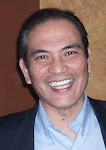 A CHRISTMAS-NEW YEAR IN EASTERN EUROPE
A CHRISTMAS-NEW YEAR IN EASTERN EUROPEIn Orthodox societies, Christmas and New Year are celebrated differently. In the former Soviet republic of Ukraine, for instance, Christmas (December 25th) is a non-event. Christmas is celebrated on January 7th instead. The country works through December 31st and then goes on holiday from January 1st to the 7th.
First, a country background. Ukraine is ancient. It lies along the many routes of conquerors and the conquered. From the north came the Vikings and the ancient Germanic tribes. From the west came the Romans, from the south, the Turks. And from the east came the Mongols. As can be expected, its people are a varied lot. Ukrainians share their Slavic roots with people of the surrounding regions—the Russians, Poles, Serbs, and Macedonians—to name some of them. The Slavic heritage, in turn, comes from the Vikings. Around 1000 AD, Ukraine, specifically its capital—Kyiv—was the seat of a kingdom called Kyivan Rus. The seat of this kingdom eventually migrated north, to present-day Moscow, to form the offspring that we now call Russia.
Second, a political background. Ukraine has a tortured past. Its national anthem, for example, can be translated as “Ukraine is still standing" or "Ukraine is not yet dead.” While it implies heroism, it also conjures an image of desperate bravery. In fact, with the major exception of Kyivan Rus, Ukraine has always belonged, in whole or in part, to more powerful kingdoms. After the Nazi occupation, it became an important cog of the defunct USSR. The Soviets exploited Ukraine to the hilt. It was simultaneously its “breadbasket” as well as its heavy metal (steel) source. In addition, many of the USSR’s engineering talent had Ukrainian origins. Most of the USSR’s navy was built in Ukraine. Its space program was based in Ukraine as was its nuclear missles. Indeed, after the USSR’s collapse in 1991, Ukraine suddenly found itself with the world’s third largest nuclear arsenal (after Russian and America). One of the longest-lived Soviet leaders, Leonid Brezhnev, was Ukrainian by birth although he did not bestow any special benefits to his native land during his era. Today, Ukraine is divided. Its president is pro-West and has been driving his country towards membership in NATO and the European Union. Ukraine’s prime minister, on the other hand, prefers the status quo and stay close to Russia. The division divides Ukraine along nearly geographic lines. With Kyiv in the center, the eastern half—the one adjacent to Russia—is pro-Russian. And it can literally be heard on the streets. The dominant language is Russian. The western half, by contrast, is more nationalistic if not pro-West. Similarly, Ukrainian is the lingua franca.
Dnipropetrovsk
Dnipropetrovsk, “Dnipro,” as the locals call it, is Ukraine’s third largest city (1.1 million). It’s in the eastern half and lies along the banks of the great Dnipro river (known in Russian as the “Dnieper”). During the Cold War, it was a “closed city.” Admission into and out of Dnipro was tightly controlled. Among other things, most of the USSR’s InterContinental Ballistic Missles (ICBMs) were produced there. So tight was its security that this city of 1 million did not officially exist in any map.

Padlocks seal the new marriage
People practice different customs in their part of the world. In Ukraine, newlyweds carry on a cute tradition. A bridge connects the city center (downtown) to an island on the river.

This island, Monastyrskiy, contains the earliest evidence of human inhabitation in the area. Today, the island houses a rebuilt cathedral and one of the tallest statues of Ukraine’s most heroic figure, Taras Schevchenko. A transplanted New Yorker, Michelle, explained a custom that newlyweds engaged in after getting married. They lock a padlock to the bridge’s rails. As you can see, the city has had many newlyweds.
(You can enlarge any image by clicking on it. To return to this page, click on the back-arrow of your browser or press the Backspace key on your keyboard.)


